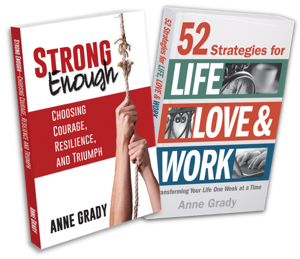Stress is defined as “the psychological and physical state that results when the resources of the individual are not sufficient to cope with the demands and pressures of the situation.” Stress comes in two types:
#1 Acute Stress
Acute stress is intense, and reduces volume of gray matter in the areas of the brain responsible for emotional regulation and self-control and can lead to memory loss and a whole host of problems.
#2 Chronic Stress
Chronic stress has been linked to heart disease, depression, anxiety, and diabetes, just to name a few, and stress exacerbates allergies, back and neck pain, and stomach issues, and weakens the immune system.
When you are under stress, your body churns out stress response chemicals (adrenaline, norepinephrine, cortisol) causing your heart to race and blood pressure to increase, and increased oxygen goes to your large muscles. This was originally meant to protect us when being chased by a predator to help us fight, play dead, or run away. While the “predator” has changed from a tiger to a snarky email, our response is very much the same.
We live in a world, where we have been taught to be everything for everyone, and we often end up in a constant state of stress. We have become addicted to stress, and in the absence of it, we worry about unimportant things that lead to more of it.
Understanding Your Stress Triggers
Stress is highly individual. We habitually find ourselves stressed by certain kinds of situations and often respond out of habit. These are often called “triggers”. Fortunately, you can take control over how you respond and react. This starts with understanding your relationship with stress.
For instance, know your physical and psychological responses. Identify which triggers – events, people, or thoughts – consistently take you in the wrong direction. It might be a colleague who embarrasses you in front of your manager and peers, sharing that you missed an important deadline. When this happens, your shoulders get tense, your palms get sweaty, and you feel like you have knots in your stomach.
Is Your Stress Self-Inflicted?
Some of our sources of stress are self-inflicted. For instance, research is increasingly finding that social media use increases anxiety, not just in teens but in adults too. Research has linked more frequent Facebook use with poorer physical and mental health and diminished life satisfaction.
Another study found that the more time people spend on social media per day, the more likely they were to have symptoms of anxiety. The study found that people who quit Facebook for a week reported big jumps in life satisfaction and positive emotions compared with the group that kept using Facebook as usual.
I’m not suggesting that everyone abandon all social media use completely. I am saying that by being aware of these problems, you can adjust your use.
There are three approaches we can take when dealing with causes of stress:
- Take action: Confront the problem or issue head on.
- Adjust your attitude. If you can’t change the situation, you can consciously change your interpretation of the situation.
- Accept the situation: Focus on things you can control and let go of worry over those things you can’t. I know, easier said than done, but it is a habit that can be cultivated.
Eliminating stress all together is not an option, and you actually don’t want to. Research has shown that we actually need a little stress to sharpen our thinking, creativity, and productivity. But when that stress becomes constant and overwhelming, it takes a toll on our body, mind, relationships, and life satisfaction.
What is your relationship with stress? Understanding this is the first step toward shifting your mindset, behavior, and habits to transform that relationship into something positive and productive.


This is an excellent article. Stress leads to a weird sort of comfort zone where we almost need it to thrive. This is not a good habit. Stress also leads you to a drama zone that builds more stress on top of stress, anxiety and confusion. Anne’s article is spot on and her remedies are always intelligent and to the point. Thanks Anne Grady!
Thanks, Anne B.! It is easy to get addicted to the “thrill” of stress. A great mentor of mine told me to BREATH ;). It’s amazing how something so simple can make such a big difference.